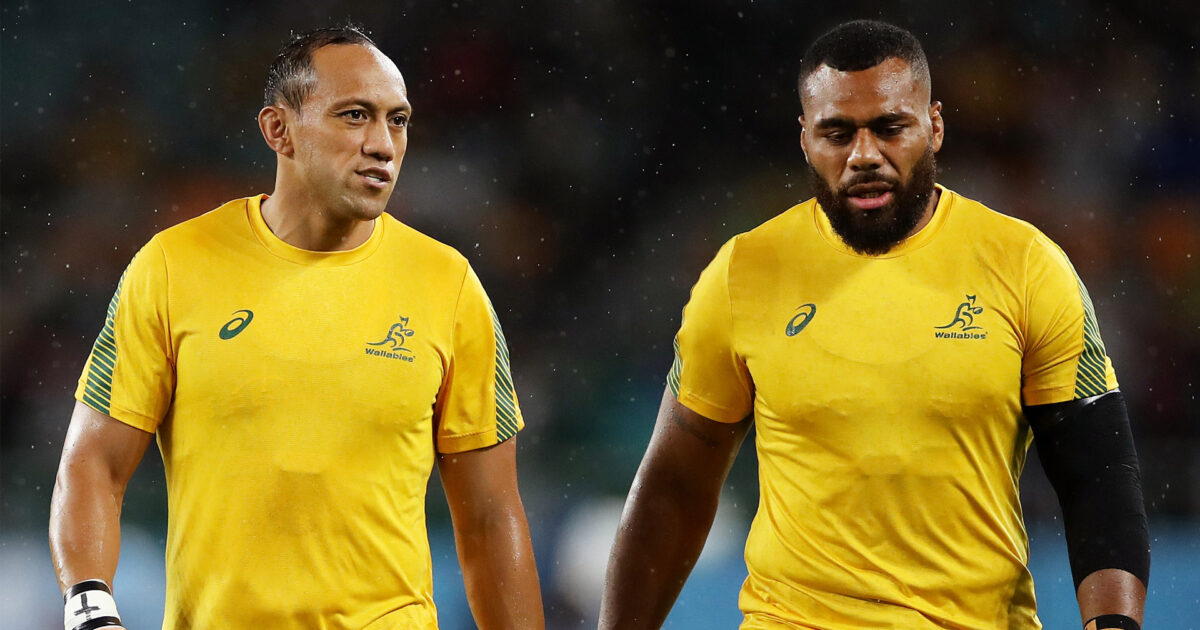Wallabies could select two extra foreign-based players in 2020 following law change

Rugby Australia have today announced an addition to its policy regarding the eligibility and selection of overseas-based players for the Wallabies.
This change is only for the remainder of 2020 and recognises the significant and unprecedented impact caused by COVID-19 on the game in Australia and around the world.
The amendment will allow for a maximum of two players, who do not meet the 60-cap and seven-year service threshold, to play for the Wallabies during World Rugby’s nominated international windows.
The addition allows greater flexibility and scope for Wallabies selectors while still prioritising the selection of players based in Australia.
Players returning to Australia from overseas who make a two-year commitment to an Australian Super Rugby Club will still be eligible to represent the Wallabies immediately upon their return.
The amendments to the ‘Giteau Law’, as it’s colloquially known, will allow Australia’s new head coach Dave Rennie to sure up the weaker areas of the Wallabies squad – but any overseas selections will still require widespread approval from Rugby Australia.
While the likes of Sean McMahon, Liam Gill and Samu Kerevi could all add extra firepower to the Wallabies set-up, Australia are well-stocked in the loose forwards and midfield. More likely, Rennie will use the allowances to select some of the second-rowers that are based outside of the country, such as Rory Arnold and Will Skelton.
Rugby Australia interim Chief Executive Rob Clarke said: “This is a prudent and measured step in response to the unprecedented impact that the COVID-19 pandemic has had on Australian Rugby and the broader Rugby community.
“Dave will soon assemble his squad and they’re likely to remain in a ‘bubble’ for 10 weeks with no opportunity to call in replacements for injury due to the quarantined environment. It will be a real test for those players selected, and the Wallabies management team, but I know they are incredibly excited about the opportunity.
“We are being quite clear that this addition is for this year only but that we will continue to review the entire policy from time to time, as required,” Clarke said.
Wallabies head coach Rennie said: “First and foremost, it is crucial that we recognise those players who are currently making a daily contribution to Rugby in Australia, and that will be reflected in the squad we name for this year’s test season.
“We now have the chance to select one or two players based overseas who don’t meet the current criteria and they’ll not only add some experience to our group but be able to guide our young players to help their development.
https://www.instagram.com/p/CE8CqpuHORU/
“We are also looking long term though. We want to bring players back to play Super Rugby here in Australia, especially those who are passionate about playing for the Wallabies, get them excited about being in the environment again and this is a great way to encourage that,” Rennie said.
This addition follows a revised policy announced in April 2015, where players based overseas were eligible for Wallabies selection if they have played more than 60 tests for Australia and held a professional contract with Australia Rugby for at least seven years.
As agreed by the SANZAAR joint venture, the squad size for each nation will increase to 46 for this year’s test season to preserve competition integrity and high-performance standards while maintaining strict COVID-19 quarantine compliance.
– with Rugby Australia



















































